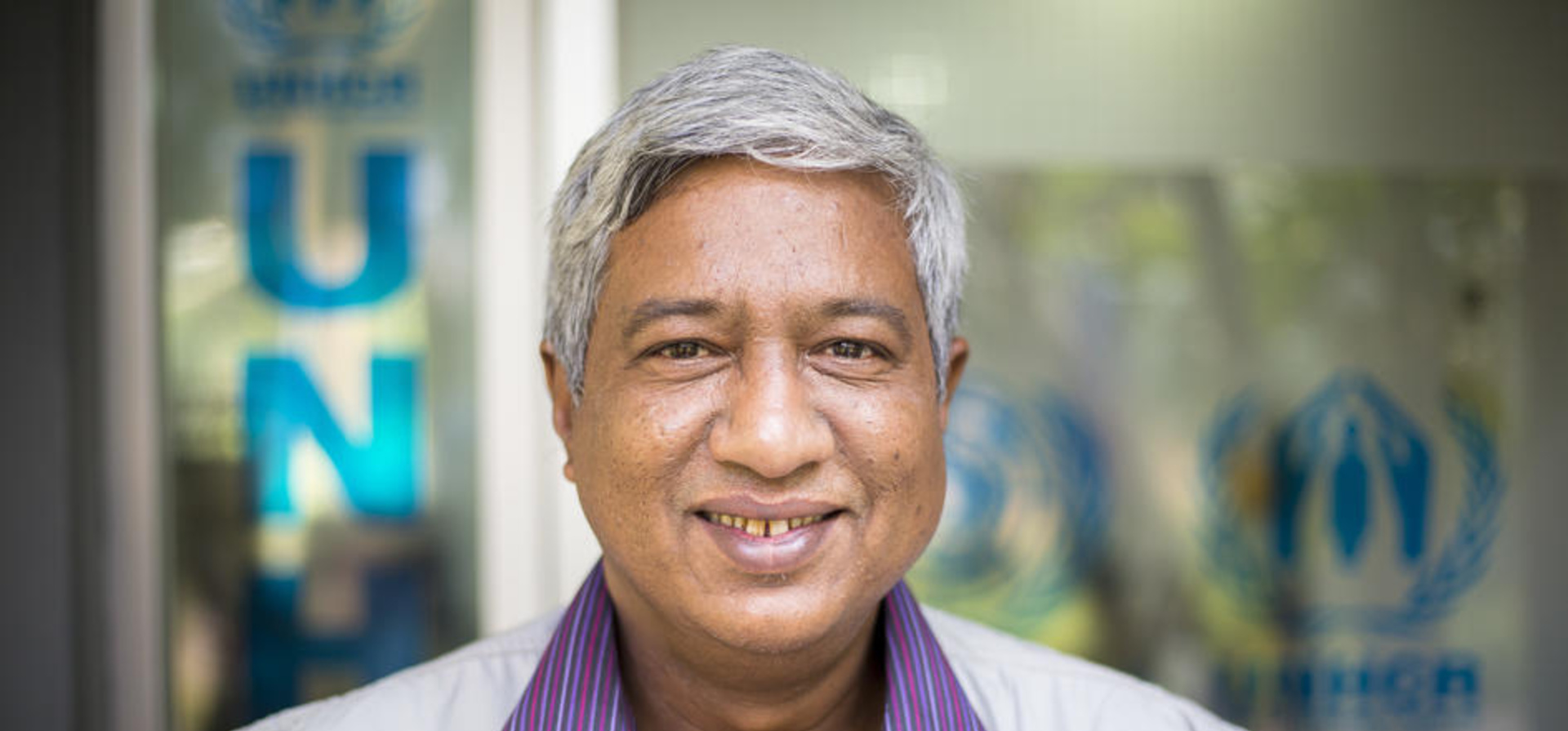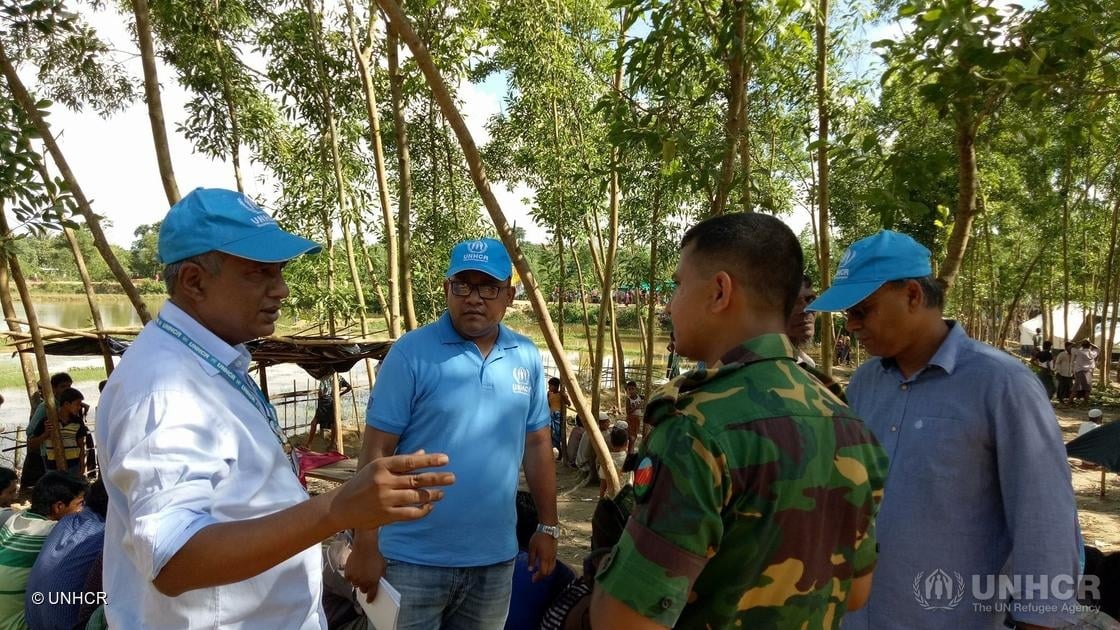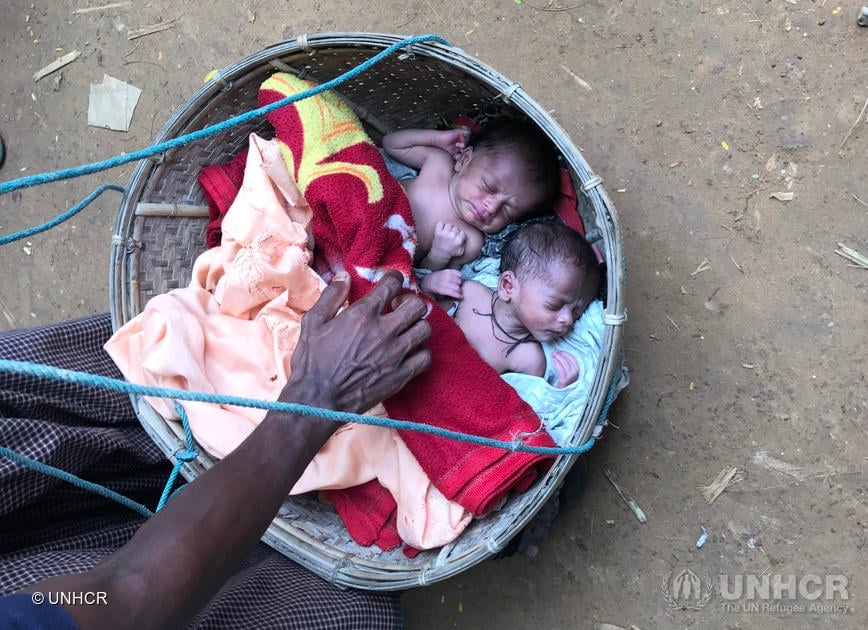“You can’t always save a life, but you can give comfort to someone that’s suffering”

“You can’t always save a life, but you can give comfort to someone that’s suffering”
By Tim Gaynor in Cox's Bazar, Bangladesh
Name: Taimur Hasan, 50, from Bangladesh.
Job title: Public Health Officer. Fifteen years with UNHCR working in Bangladesh and Nepal, as well as emergency assignment in Iraq.
Why did you become an aid worker?
As a doctor, my primary goal is to help people. Working in public health, I saw how I could be more effective in a humanitarian role. This job puts me in direct contact with vast groups of people carrying oftentimes uncommon and dire needs. Doing something to improve their lives is immensely rewarding. You can’t always save a life, but you can give comfort to someone that’s suffering.

What are the most rewarding/challenging things about your job?
More than 720,000 Rohingya refugees from Myanmar have fled to south-eastern Bangladesh since late August 2017.
At the beginning of the influx, thousands of people were coming every day. Many had been walking several days without food or proper sleep, which resulted in low resistance to disease.
We also found that one quarter of the children under five were suffering from malnutrition, and most had never received immunisation for common conditions. More than 600 people came down with measles, and in the following weeks over 200,000 needed treatment for acute diarrhoea because the water and sanitation facilities were inadequate. An outbreak of diphtheria sickened nearly 7,000 people. Remarkable teamwork among the agencies brought these issues under control.
Of course, not all the health problems were physical. One of the biggest challenges was witnessing the extreme mental duress everyone is under. The violence that refugees were subject to in their country was compounded by their gruelling journey to Bangladesh—often over foot and without food or shelter. The conditions [in Bangladesh] sometimes didn’t improve the situation. Uncertainty left everyone in fear.
We operated just one clinic out of a tent at first. Now we support 15 primary care facilities with our partners, including the refugee health unit of the Refugee Relief and Repatriation Commissioner’s office, and with other non-governmental organizations. We have also set up diarrhoea treatment units and nutritional centres with the aid of our partners, alongside an immunisation campaign that covers 90% of children.
What makes me proud is that I could contribute as a doctor, offering comfort to people in need.
Worst day at work?
There were bad times, particularly at the start of the emergency. Seeing so many people out in the road with no shelter and only water and wild rice to eat was especially difficult. But there is one day that stays in my mind.
I was working at the Kutupalong settlement and I got a call from the reception centre requesting I come. Once there, I found a young man carrying a basket wrapped with a cloth. Two tiny twins were inside.

The twins’ mother was a sick young girl. Fear and exhaustion covered her face. She had delivered the twins while passing through the jungle from Myanmar. She had no food, let alone other means for protection or sustenance. Seeing her struck me the most. I felt a jolt of shock tinged with pity, for she was forced to deliver without even basic human rights or dignity. The state of both the parent and children left me with a deep impression.
What was your best day at work?
My best day was the following day when I got to see them again. We immediately took the mother and infants to the maternity unit of the primary care clinic. The babies’ umbilical cords were cleaned and clamped, while the mother received the food and the medical care she needed.
The mother smiled when she saw her babies wrapped in clean towels. The anguish disappeared from her face, replaced with a sense of security. Not just for herself, but for her kids and their future together. Witnessing all this filled me with a profound sense of happiness and faith in humanity.
Your support is urgently needed to help these children, women and men in Bangladesh.
Please show your support now.
The UN Refugee Agency works in 128 countries helping men, women and children driven from their homes by wars and persecution. Our headquarters are in Geneva, but most of our staff are based in the field, helping refugees. This profile is part of a series highlighting our staff and their work.




